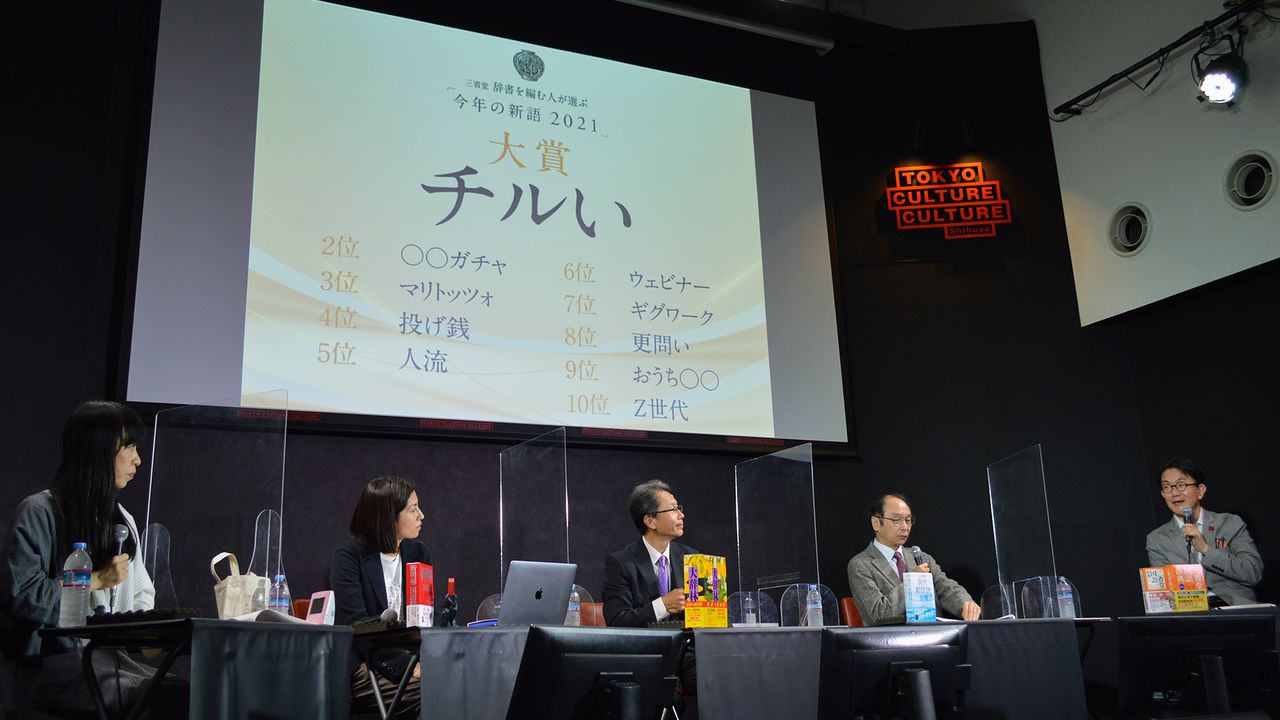
Laid-Back Loanword “Chirui” Chosen as One of Japan’s Words of 2021
Language Society- English
- 日本語
- 简体字
- 繁體字
- Français
- Español
- العربية
- Русский
An Unusual Adjective
Dictionary publisher Sanseidō picked chirui, an adjective based on the English phrase “chill out,” as its word of the year for 2021. From the late 2010s, young Japanese have adapted the English into verb forms like chiru suru and chirutteru and adjectives like chiru na and the winning chirui.
Like “chilled out” or the adjectival “chill,” chirui means to be relaxed or at ease. It might be used to describe a Sunday afternoon or the atmosphere of a favorite café. COVID-19 has buffeted the world again in 2021, but many are hoping they can at least enjoy a chirui time over the New Year period.
It is common for loanwords to be imported into Japanese as na adjectives, such as waido na (from “wide”), and considerably rarer for them to transform into i adjectives. There are, however, examples like eroi (from “erotic”), emoi (from “emotional”), and guroi (from “grotesque”), as well as the once-popular term naui (from “now”), to describe something trendy or up to date.
When choosing their words of the year, dictionary publishers aim to pick terms they expect to have some staying power, unlike the buzzwords in the “Words of the Year” contest. Dictionary compiler Ono Masahiro said that because it was extremely unusual for a loanword to become an i adjective, this was a reason for recording it in the dictionary.
There were three words in the top 10 related to COVID-19. Jinryū for the “flows of people” tracked by the government in its containment efforts was in fifth place, webinā (webinar) in sixth, and various ouchi (at home) activities in ninth.
Another Japanese publisher, Shōgakukan, selected oyagacha as its word of the year. This portmanteau puts together oya, “parents,” with gacha, deriving from a word for how low-cost random items are distributed in mobile games. The term is based on the idea that children cannot choose who their mother and father are, and may be fortunate or not in who they get. The publisher chose jinryū as its runner-up.
Sanseidō’s Top 10 New Words of the Year for 2021
- チルい — Chirui. Deriving from “chill out,” this adjective means pleasantly relaxed in both body and mind, or describes this kind of atmosphere.
- ガチャ — Gacha. From the system whereby players get random items in mobile games, which is based in turn on the original gacha capsule toy vending machines, this word is used to talk about things governed by chance. May be applied to complaints about one’s bad luck in the lottery of life, as in the case of oyagacha (parents gacha).
- マリトッツォ — Maritottso. The Italian confection maritozzo—a sweet bun packed with whipped cream—became the latest food craze in Japan in 2021.
- 投げ銭 — Nagesen. Literally meaning “thrown coin,” this has long referred to the money given to, for example, street performers. A new meaning, however, is of money donated to websites that provide free content.
- 人流 — Jinryū. A word for “flows of people” vacationing, commuting, or otherwise traveling, as mass movement became a factor to monitor during the pandemic.
- ウェビナー — Webinā. The English portmanteau of “web” and “seminar” was adopted into Japanese in a year when a lot of learning went online.
- ギグワーク — Gigu wāku. The contracting out of separate jobs to individuals online, or “gig work,” became increasingly common in Japan in 2021. While it can provide new opportunities to companies and workers, there has been criticism that pay and protections for the latter are inadequate.
- 更問い — Saratoi. Meaning a “follow-up question” or to ask such a question, this term came under the spotlight as journalists found themselves limited to just one question each at Prime Minister Suga Yoshihide’s press conferences, and argued the importance of checking further details.
- おうち〇〇 — Ouchi. The polite word for “house” became a common prefix for various at-home activities performed during the restrictions of the pandemic.
- Z世代 — Z-sedai. The Japanese word for “Generation Z,” who are drawing interest as they become young adults.
Shōgakukan’s Top New Words of the Year for 2021
親ガチャ — Oyagacha [Winner]. The phrase “parents gacha” expresses how children cannot choose the family they are born into.
人流 — Jinryū [Runner-up]. The “flows of people” tracked by the Japanese government using mobile phone and other data to combat COVID-19.
(Originally published in Japanese on November 30, 2021. Banner photo: Dictionary publisher Sanseidō announces its words of the year on November 30, 2021.)